Schools2030 India
Schools2030 India operates in the northern state of Bihar in the districts of Bhojpur, Muzaffarpur, Patna, Samastipur and Saran.
India – with a population of more than 1.3 billion, over 1.5 million schools, over 8.7 million primary and secondary teachers and more than 260 million enrolments each year – is home to the largest and most complex education system in the world. India is a massive country in size, geography and diversity, and is also the world’s largest democracy. It is home to internationally renowned universities and scholars but is also characterised by high rates of poverty and income inequality which means that many students receive poor quality education.
Jointly managed at the national and state levels, many initiatives have been undertaken to improve access to quality schooling – particularly for those who are economically or socially disadvantaged. This federalised structure leads to considerable diversity between and even within state education systems. Access to education has increased substantially, with about 93 percent of rural households having a primary school within a distance of 1km. 26% of India’s population is under 15, a figure that has dropped dramatically in recent decades. Girls and children from lower-caste families are more likely to face educational disadvantage and have lower secondary school transition rates than boys and those form upper castes.
In 2009, India passed the Right to Education Act, which provides free and compulsory education to all children between ages 6-14. The Annual Status of Education Report (ASER) in 2018 found that over 97% of students in this age group are enrolled in school. In 2020 the Indian government developed a new National Education Policy, which aims to ensure equitable access to high quality education for all learners, regardless of social and economic background, The focus of this new policy is to ensure universal access to high-quality ECCE across the country in a phased manner and improve universal foundational literacy and numeracy in primary school by 2025.
Bihar has some of the lowest indicators in all of India when it comes to literacy rates, dropout rates and amount spent on schooling (for example only 41% of children in Grade 5 are able to read text intended for Grade 2, compared with the average of 50% across other states). Children in Bihar are some of the most marginalised in the country and thus there is an urgent need for innovative solutions designed by teachers and communities.
Our Team in India
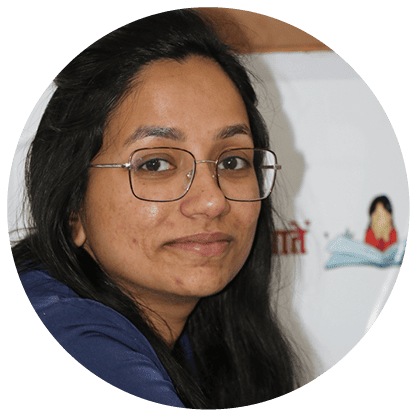
Trishala Singh
Schools2030 National Coordinator

Dr Ketki Seksana
Senior Programme Officer (Education and ECD)
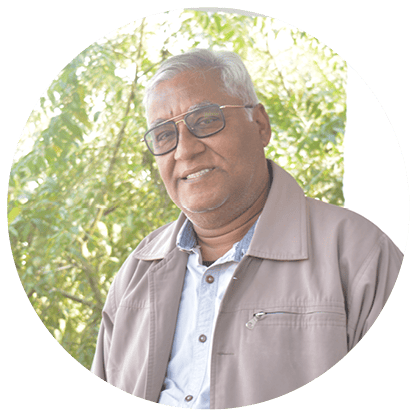
Abhay Kumar
Schools2030 Programme Coordinator

Rajlaxmi Kumari
Schools2030 Programme Coordinator

Saty Prakash
District Project Facilitator
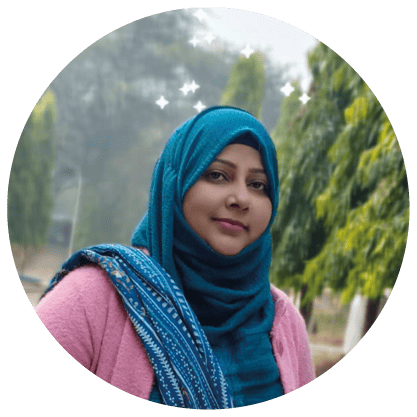
Atiya Murad
District Facilitator (Elementary)

Preety Kumari
District Facilitator (Elementary)
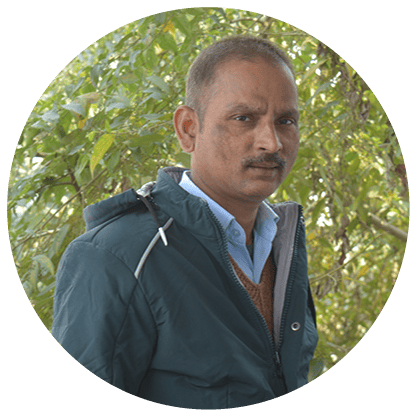
Raju Kumar
MIS Officer

Mamta Kumari
District Facilitator (Elementary)
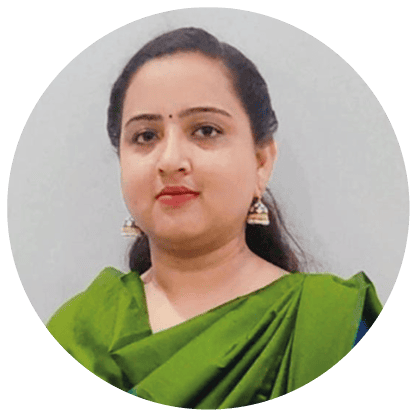
Akanksha Panday
District Facilitator

Rahul Ranjan
District Facilitator (Elementary)

Amit Kumar
Procurement Officer
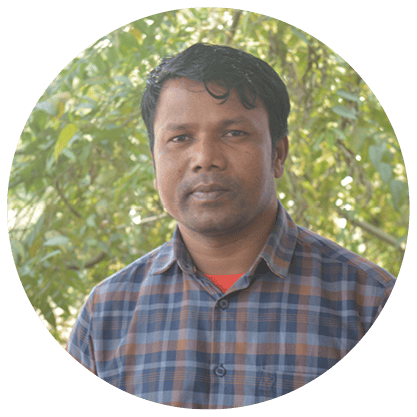
Saroj Mandal
District Project Facilitator (Secondary)

Manish Pandit
District Facilitator (Secondary)

Bhanu Priya
District Facilitator (Elementary)
ASSESS
Schools2030 India’s five focal domains were selected – in collaboration with teachers and the Learning Partner, Eklavya – to align to the National Education Policy 2020. Priorities for all age groups included more traditional areas like foundational literacy and numeracy, as well as non-academic skills like creativity.
Rapid assessment tools were developed to measure student ability in the chosen domains based on those used by ASER for their annual surveys in India. Using these tools will help teachers and the Schools2030 team gain a better understanding of both student needs in general, as well as the impact of COVID-19 school closures on learning losses.
The India team has worked alongside Eklavya, (recently recruited as National Assessment Partner), the Global Assessment Partner, Oxford MeasurEd, and Schools2030 donor, Porticus, to continue to develop and refine the assessment tools, many of which have never before been created for use in the country.
Access examples of assessment tools
from across our programme countries.
All these tools are available free to download below and will continue to be refined and iterated to ensure robust psychometric validity.
INNOVATE
With schools in India remaining closed for much of the programme’s inception years, the team focused initial Human-Centred Design (HCD) efforts on supporting communities to learn at home. During this uncertain period, the Schools2030 team maintained regular communication with teachers, learners and parents through phone calls and text messages and engaged the wider community to design at-home learning innovations with a focus on the domains selected for each age group. The beauty of many of the innovations that were designed is that whilst the primary focus might be the selected domains, many of them have interdisciplinary benefits also.
As schools re-opened and public life resumed, the team in India have been able to conduct in-person workshops with teachers and school communities, drawing on evidence from the rapid assessments and other data to explore how to improve learning and teaching in schools. The first suite of teacher-led innovations is currently under development and will be piloted in schools in 2023.
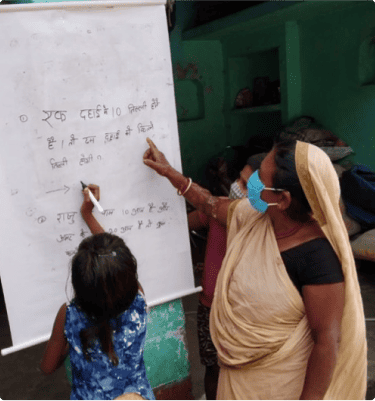
Learning Walls
TO IMPROVE: Creativity, collaboration, problem-solving
COST: all
Learning Walls (Bujho to Jaane or riddles) are simple whiteboards or chart paper set up in remote communities with no access to technology. Each day, a volunteer writes a puzzle or question, encouraging children and the whole community to work together to problem-solve.
Show More
So far, there are 80 learning walls across Schools2030’s geography in India.
Learning at Home Kit
DESIGNED BY: Local learning communities facilitated by the Schools2030 team
TO IMPROVE: Literacy and numeracy
AGE GROUPS: 5+ and 10+
The Learning at Home Kit (LAHK) was designed for communities without ready access to technology to support with distance learning during the height of the pandemic.
Show More
The boxes, named ‘Guraiaya’ (‘Sparrow’ in Hindi – an emblem of curiosity) were filled with coloured pens, picture and word cards and activity guides for families. The LAHK was distributed to over 1000 children between 6-10 years old to support their academic and non-academic learning and encourage parental engagement in their studies.
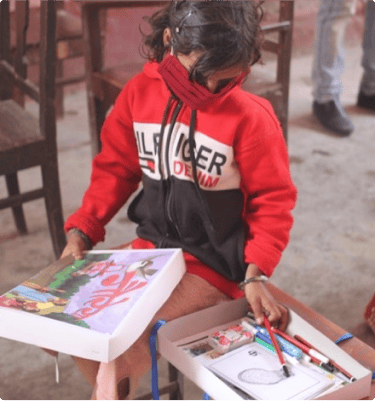
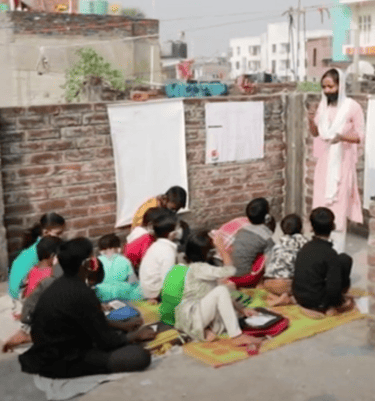
Volunteer Learning Activity Centre (VLAC)
TO IMPROVE: Self-awareness, leadership, self-esteem and creativity in the 15+ age group
AGE GROUP: all
80 Volunteer Learning Activity Centres were set up (50 in Samastipur and 30 in Patna) serving over 1,000 students.
Show More
These centres are staffed by youth volunteers and provide a space for children to take part in meaningful and joyful learning experiences, as well as allow youth volunteers to develop important employable and “soft” skills as teachers and learning facilitators.
SHOWCASE
Coming Soon
NEWS
Country Assessment Partners, Evaluation Partners and Learning Partners
